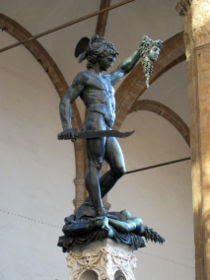
One of the best known characters in Greek mythology was the tragic myth of Hercules, son of the Greek god Zeus and a man of enormous strength.
In a fit of madness he killed his own children. To atone for his crime he was forced to serve King Eurystheus, who set him the tasks that are known as the twelve labours of Hercules.
In summary , these twelve tasks were as follows:
1) First task was to kill the Nemean lion, a monstrous beast that terrified the country of Nema.
2) His second task was to kill the Hydra, a terrible nine-headed water serpent
3) Thirdly he had to capture, alive, the Arcadian stag
4) His fourth task was the capture of the Erymanthian boar
5) Then he had to clean the Augean stables. Labor Five.King Augeus had a herd of 3,000 oxen and the stables had not been cleaned for 30 years.
6) His sixth labour was the slaying of the Stymphian birds, which fed on human flesh
7) Hercules had to capture the Cretan bull sent by Neptune to the king of Crete for sacrifice.
8) Task number eight was the capture of the mares of Diomedes.
9) The ninth labor was to obtain the the girdle (belt) of Hippolyte, the queen of the Amazons.
10) Then he had to capture the oxen of Geryon, a monster of with three bodies
11) His eleventh exploit was to obtain the golden apples of the Hesperides
12) His final task was the bringing up of Ceberus from the underworld.
Image from Wikipedia










